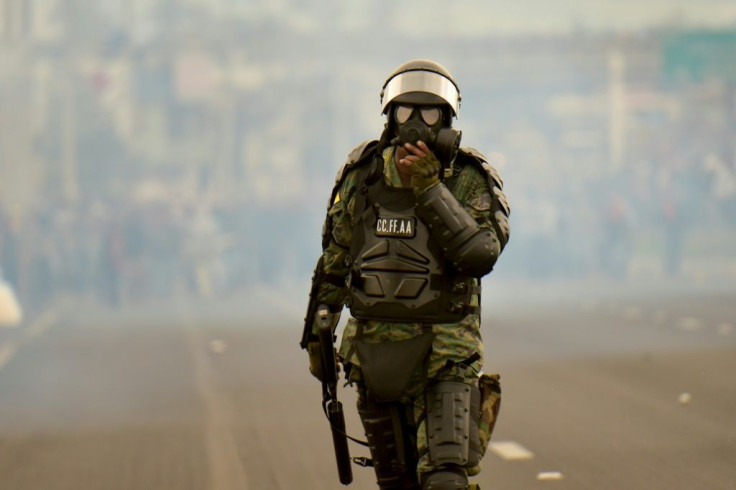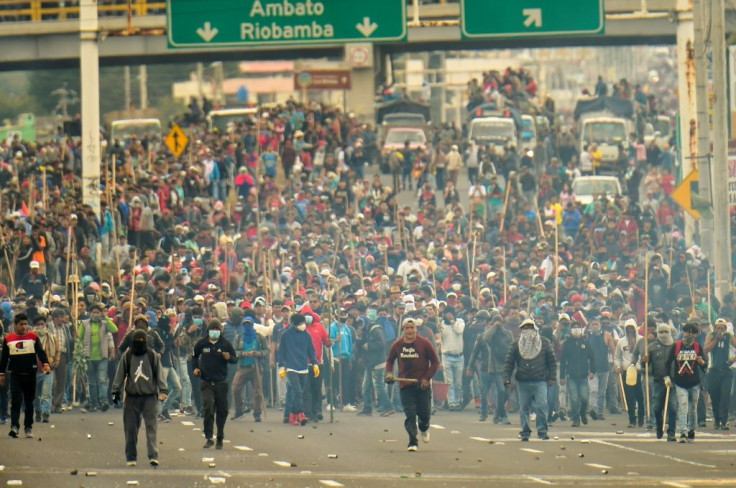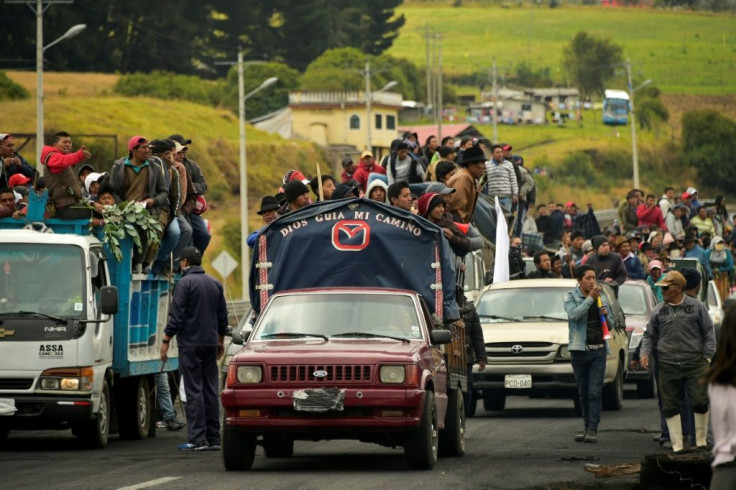Clashes As Indigenous March On Ecuador Capital Over Fuel Price Hike

Hundreds of indigenous people and farmers clashed with Ecuadoran security forces Monday as they marched toward the capital Quito to protest against rising fuel prices.
Riot police and the military used tear gas to try to disperse the marchers in the town of Machachi on the outskirts of Quito.
Protesters blocked roads in the town with burning tires and barricades.
Ecuador has been rocked by days of demonstrations after increases of up to 120 percent in fuel prices came into force on October 3.
Thousands of indigenous marchers are converging on Quito for a protest scheduled for Wednesday, according to umbrella indigenous organization CONAIE.

"More than 20,000 indigenous people will be arriving in Quito," CONAIE president Jaime Vargas told reporters.
Protesters from southern Andean provinces, some armed with sticks and whips, began heading to the capital on Sunday aboard pick-up trucks and on foot.
They said other indigenous groups were moving toward the capital from the north to join Wednesday's protest in Quito.

The protests -- the largest in a decade -- are being led by transport unions but include students and other groups.
The protests have so far left one civilian dead and 77 injured, the majority of them security forces, the government said. A total of 477 people have been detained.
The government of President Lenin Moreno scrapped subsidies as part of an agreement with the International Monetary Fund to obtain loans despite Ecuador's high public debt.
The subsidies were costing the government $1.3 billion a year.
The IMF agreement, signed in March, allowed Ecuador to borrow $4.2 billion.
Moreno -- who blames the deterioration in the country's finances on his predecessor -- declared a state of emergency on Thursday.
The emergency measure allows the government to restrict movement, to use the armed forces to maintain order and to censor the press.
CONAIE said it was invoking a state of emergency in indigenous lands and warned that security forces entering indigenous areas would be captured and held.
Indigenous leaders claimed they were holding several dozen soldiers since Sunday.
© Copyright AFP {{Year}}. All rights reserved.





















